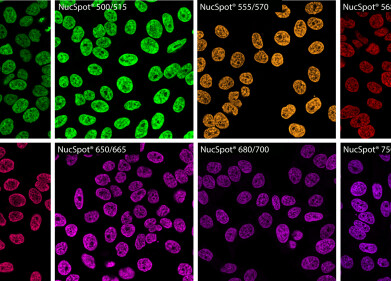Microscopy & Microtechniques
Going Vegan: Why Choline is Key
Sep 22 2019
In a statement geared towards vegans, a British nutritionist is warning that plant-based diets can result in alarmingly low levels of an essential nutrient involved in brain health. Dr Emma Derbyshire of Nutritional Insight warns that deficiency in choline, a dietary nutrient found predominantly in animal foods, can jeopardise brain health and hinder foetal development.
While Dr Derbyshire commends plant-based and vegan diets for their environmental and ethical credentials, she says low levels of choline can make this lifestyle a dangerous choice for many Brits. Her findings were published in the online journal BMJ Nutrition, Prevention & Health and explain that while choline is produced naturally by the liver, the amount isn't enough to meet the daily needs of the human body.
British nutritionist warns of a "choline crisis"
Not only is the dietary nutrient critical to brain health, but choline plays an important role during foetal development. It's also linked to liver function, with deficiencies leading to blood fat metabolism irregularities and cellular damage caused by an excess of free radicals.
The dietary nutrient is found in beef, eggs, dairy products, fish and chicken, which means vegetarians and vegans are at risk of deficiencies. In general, choline intake recommendations range from 425 mg/day for women to 550 mg/day for men, with pregnant and breastfeeding women advised to consume the same amount as men to support foetal and infant development.
However according to a recent study, the average diets of North Americas, Australians and Europeans fall short of these recommendations. For Dr Derbyshire, the findings are concerning, especially as "current trends appear to be towards meat reduction and plant-based diets." She stresses that if choline cannot be obtained from dietary sources, supplements must be considered to maintain healthy brain function.
Calls for government to promote choline-rich diets
Building on her research, Dr Derbyshire accuses the UK government of failing to monitor dietary levels of choline or include the essential nutrient in official dietary guidance compendiums.
"Given the important physiological roles of choline and authorisation of certain health claims, it is questionable why choline has been overlooked for so long in the UK," she asserts. "More needs to be done to educate healthcare professionals and consumers about the importance of a choline-rich diet, and how to achieve this."
As well as protecting public health, science plays an important role in safeguarding rare plant species like the Pleurothallidinae. For a closer look at the latest research being conducted at the Centre for Electron Microscopy in Birmingham, don't miss 'Using Scanning electron microscopy to establish the floral micromorphology of the genus Restrepia (Orchidaceae) and the potential consequences for pollination.'
Digital Edition
Lab Asia 31.6 Dec 2024
December 2024
Chromatography Articles - Sustainable chromatography: Embracing software for greener methods Mass Spectrometry & Spectroscopy Articles - Solving industry challenges for phosphorus containi...
View all digital editions
Events
Jan 22 2025 Tokyo, Japan
Jan 22 2025 Birmingham, UK
Jan 25 2025 San Diego, CA, USA
Jan 27 2025 Dubai, UAE
Jan 29 2025 Tokyo, Japan



















